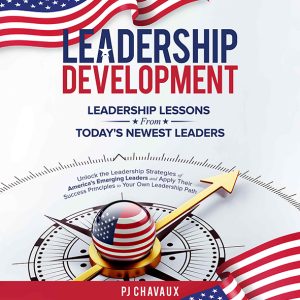The post asserts that the 2024 U.S. presidential election, in which Kamala Harris reportedly defeated Donald Trump, was rigged through a sophisticated scheme involving technology and corporate influence. Key points include:
- Leonard Leo’s Role: The author claims that Leonard Leo, a conservative activist, sold an electronics firm in 2021, which somehow enabled tech giants to control election systems. The post suggests this sale gave tech companies the means to manipulate voting machines or election data.
- Tech Giant Conspiracy: It alleges that tech giants, possibly including companies like Dominion Voting Systems or others, used their technological capabilities to alter election results, ensuring Harris’s victory. The post implies a coordinated effort to “rewire” the election, though it provides no specific details on how this was achieved.
- Historical Precedent: The author references alleged election irregularities in 2020, citing claims from Trump supporters and “experts” like Mike Lindell, to argue that similar tactics were used in 2024 but on a more advanced scale.
- Call to Action: The post urges readers to recognize this supposed fraud and implies that the election outcome was illegitimate, though it stops short of providing concrete evidence or actionable steps beyond raising awareness.
The post relies heavily on speculative language, anecdotal assertions, and references to unverified sources, such as unnamed “experts” and prior conspiracy theories about election fraud. It lacks specific data, such as technical details of the alleged manipulation or credible documentation of the claims.
Why the Author’s Theories Are Ridiculous
The author’s claims are implausible and lack credibility for several reasons, rooted in logical, evidential, and practical deficiencies. Below, I outline the key issues:
- Lack of Empirical Evidence:
- The post provides no verifiable evidence to support the claim that Leonard Leo’s 2021 sale of an electronics firm enabled election manipulation. It does not specify the firm, the buyer, or how the transaction facilitated technological interference. Without concrete details—such as company names, transaction records, or technical mechanisms—the claim is baseless.
- Allegations of tech giants “rewiring” the election are vague and unsupported by data. Election systems in the U.S. are decentralized, managed by state and local governments, and subject to rigorous security protocols, including paper ballot backups in most jurisdictions. No credible reports from election officials, cybersecurity experts, or independent audits in 2024 have substantiated widespread technological manipulation.
- The author’s reliance on 2020 election fraud claims, such as those from Mike Lindell, is problematic. These claims have been repeatedly debunked through court rulings, recounts, and audits. For example, Dominion Voting Systems successfully sued multiple entities for defamation over false 2020 claims, with no evidence supporting systemic fraud.
- Implausible Scale of Conspiracy:
- The theory requires an extraordinarily complex conspiracy involving tech companies, election officials, and potentially thousands of individuals across multiple states, all acting in secret without leaks. Coordinating such an effort without detectable evidence—especially given the scrutiny of U.S. elections by both parties, independent observers, and international monitors—is highly implausible.
- Election systems use diverse technologies (e.g., Dominion, ES&S, Hart InterCivic) and include manual processes like hand-counted ballots and post-election audits. The post does not explain how tech giants could uniformly manipulate these varied systems without leaving a trace.
- Mischaracterization of Leonard Leo’s Influence:
- Leonard Leo is a known conservative figure associated with the Federalist Society and judicial nominations, not election technology. The claim that his sale of an unnamed electronics firm enabled tech giants to control elections is speculative and lacks any documented connection. No public records or credible reports link Leo to election system technologies or manipulations in 2024.
- The post’s focus on Leo seems designed to appeal to readers familiar with his conservative activism, but it fails to provide a causal link between his actions and election outcomes.
- Logical Fallacies and Bias:
- The post employs a post hoc ergo propter hoc fallacy, implying that because Harris won and Leo sold a firm in 2021, the two events are causally related. This ignores the multitude of factors influencing election outcomes, such as voter turnout, campaign strategies, and public sentiment.
- It exhibits confirmation bias by cherry-picking unverified claims that align with the author’s narrative while ignoring extensive evidence of secure elections. For instance, the Cybersecurity and Infrastructure Security Agency (CISA) and other authorities consistently report that U.S. elections are highly secure, with no evidence of widespread fraud in 2024.
- Practical Barriers to Election Manipulation:
- Modern U.S. election systems are designed with multiple safeguards, including bipartisan oversight, chain-of-custody protocols for ballots, and post-election audits. For example, states like Georgia and Pennsylvania conduct risk-limiting audits to verify results. The post does not address how these safeguards were bypassed.
- Allegations of “rewired” elections would require compromising thousands of voting machines, many of which are air-gapped (not connected to the internet), and altering paper records, which are used in over 95% of U.S. jurisdictions. The logistical complexity of such an operation without detection is astronomical.
- Substack’s Context and Author Credibility:
- The post is hosted on Substack, a platform that allows anyone to publish without editorial gatekeeping, which can amplify unverified claims. While Substack hosts reputable writers, it also permits fringe voices, as noted in criticisms of the platform for hosting controversial content (e.g.,). The author, Elizabeth Woodworth, is not identified as an expert in election technology or cybersecurity, and the post cites no authoritative sources to bolster her claims.
- The post’s sensational tone and reliance on conspiracy rhetoric (e.g., “rewired the election”) align with debunked narratives from 2020, undermining its credibility.
- The post is hosted on Substack, a platform that allows anyone to publish without editorial gatekeeping, which can amplify unverified claims. While Substack hosts reputable writers, it also permits fringe voices, as noted in criticisms of the platform for hosting controversial content (e.g.,). The author, Elizabeth Woodworth, is not identified as an expert in election technology or cybersecurity, and the post cites no authoritative sources to bolster her claims.
Broader Context
The 2024 election, like previous U.S. elections, was closely monitored by federal agencies, independent organizations, and both political parties. No major reports from credible sources, such as CISA, the Brennan Center for Justice, or election integrity groups, have corroborated claims of systemic fraud or technological manipulation. Public data, including voter turnout statistics and audit results, would need to show significant anomalies to support the author’s claims, but no such evidence is presented or exists in reputable sources.
Conclusion
The author’s theories are ridiculous because they rely on speculative assertions, lack empirical evidence, and ignore the practical and logistical barriers to manipulating a decentralized election system. The claims about Leonard Leo and tech giants are unsubstantiated, and the post’s reliance on debunked 2020 narratives further undermines its credibility. It appeals to readers predisposed to distrust election outcomes but fails to provide any actionable or verifiable evidence. For accurate information on election integrity, readers should consult primary sources like state election offices or organizations like the National Conference of State Legislatures, rather than unverified Substack posts


